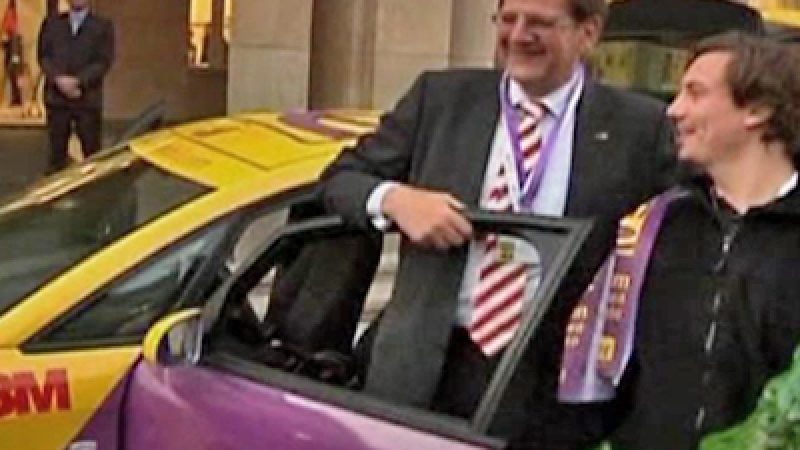
Electric Car Battery’s Record Range of 280 Miles Per Charge

A German company say their new battery could be the breakthrough electric car-makers have been waiting for. The battery should power a normal family car for up to 450km or 280 miles on a single charge.
The company, DBM Energy, says their new lithium-polymer technology is lighter and more efficient than lithium-ion batteries. They’ve fitted them in an Audi A2 to demonstrate their practicalities.
[Swen Streubel, Spokesman, L.E. Mobile]:
„This is no miracle, we have all of the components which are available in the car and in theory we can show that it is possible to travel via electricity today and that it is suitable for daily life.“
Unlike other electric cars where the entire boot or trunk is used for the battery, the „Kolibri“ battery occupies a lot less space.
Last Autumn, DBM Energy drove a different version – a prototype A2 – into the record books with a 600km trip from Munich to Berlin on a single charge.
The company says it used independent testers to verify the feat.
The Federal Office of Material Research checked the safety of the Kolibri battery while technical services company Dekra checked the performance.
DBM Energy says their battery has been examined and tested thoroughly, passing with flying colors.
[Klaus Reindl, Spokesperson, German Motoring Club ADAC]:
“ … this battery actually is very efficient. Whether or not that will actually be enough in the future for traveling by electricity remains to be seen, it is certainly a step towards how the future will be.“
Inventor Mirko Hanneman is positive that this technology could be the key to the future.
[Mirko Hanneman, Inventor, Kolibri Battery]:
“ … if you produce a higher quantity then it will be economically as viable as today’s fuel engines.“
With tough new EU emissions targets coming into effect next year, all the major car manufacturers are either already mass-producing electric cars or rushing to catch up.
 Foto: NTD
Foto: NTD



























vielen Dank, dass Sie unseren Kommentar-Bereich nutzen.
Bitte verzichten Sie auf Unterstellungen, Schimpfworte, aggressive Formulierungen und Werbe-Links. Solche Kommentare werden wir nicht veröffentlichen. Dies umfasst ebenso abschweifende Kommentare, die keinen konkreten Bezug zum jeweiligen Artikel haben. Viele Kommentare waren bisher schon anregend und auf die Themen bezogen. Wir bitten Sie um eine Qualität, die den Artikeln entspricht, so haben wir alle etwas davon.
Da wir die Verantwortung für jeden veröffentlichten Kommentar tragen, geben wir Kommentare erst nach einer Prüfung frei. Je nach Aufkommen kann es deswegen zu zeitlichen Verzögerungen kommen.
Ihre Epoch Times - Redaktion